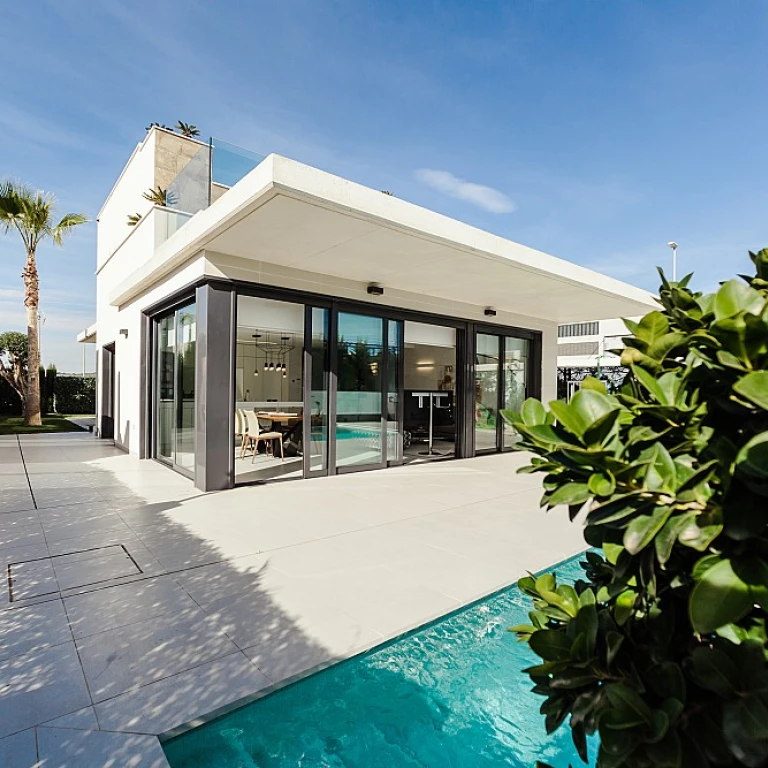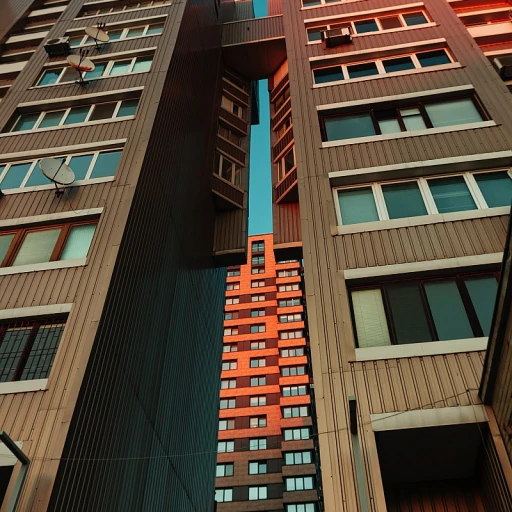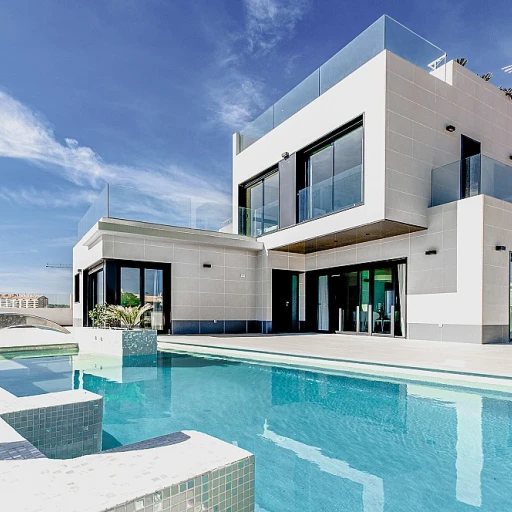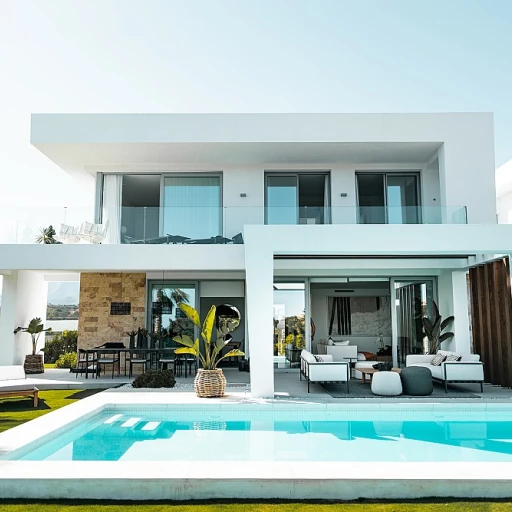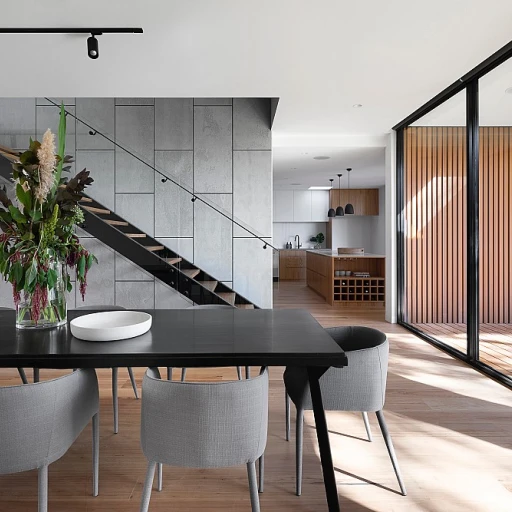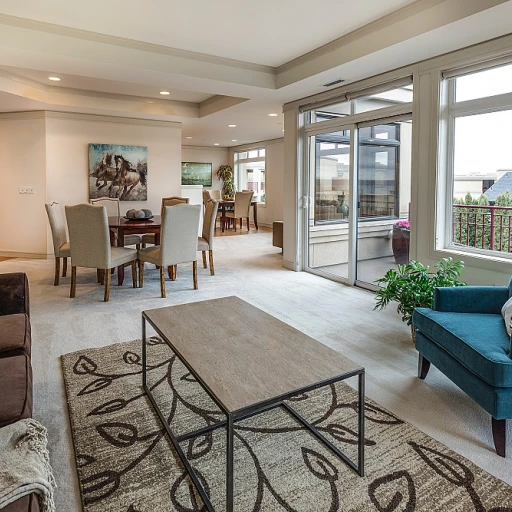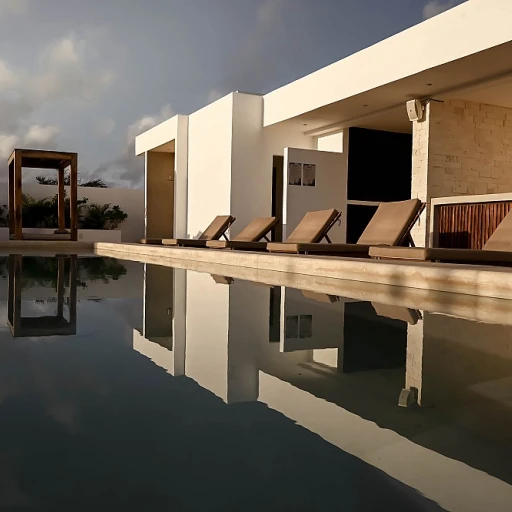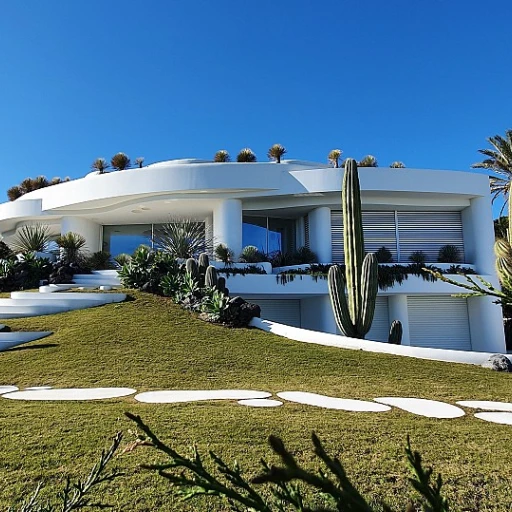
Terroir and Prestige: The Rise of Vineyards in Luxury Estates
The Significance of Terroir in Defining Estate Uniqueness
In the realm of luxury real estate, the concept of terroir has adopted a new dimension of prestige. 'Terroir'—a term deeply rooted in viniculture—refers to the unique characteristics that the geography, geology, and climate of a certain place, bestowed on the wine produced. It's a blend of natural conditions that cannot be replicated elsewhere, often leading to a differentiation in flavor and quality. In the current luxury market, private vineyards epitomize the notion of uniqueness and exclusivity, shaping a tangible connection between the connoisseur and the land. Here, one doesn't just sell wine; they offer a story of the soil and ancestry. According to a recent survey, about 83% of affluent buyers are drawn to the idea of owning lands that provide a unique geographic identity to their estates.
Infusing Prestige into Private Estates with Vineyards
Integrating a private vineyard into a luxury estate doesn't just elevate its allure; it stitches the thread of rarity and prestige into its identity. An estate that produces its own label of fine wine often becomes the subject of conversation in elitist circles, symbolizing a status that's revered among peers. This transformation reflects not only in the aura of the property but also in its market value. In fact, property listings that boast vineyards see an appreciation rate that outpaces luxury estates without such features. Aspiring estate owners seek this merger of agriculture and affluence, combining the sensorial pleasure of wine with the aesthetics of their elegant homes.
The Dynamic Between Landscape and Luxury
The synergy between the landscape of an estate and the luxury it exudes is remarkably tangible. Owning a private vineyard allows the proprietor to craft a landscape that's not only stunning but productive. It represents an amalgamation of nature's artistry and human creativity. Aligning with the resurgence of agrarian-themed luxury estates, vineyards provide a pastoral escape, reinforcing the exclusivity of a property. The beauty of a sprawling vine fully laden with grapes is a visual delight that few can claim as their own. This picturesque feature emphasizes the lifestyle of opulence and connection with the earth that so many high-net-worth individuals find irresistible. It's a sophisticated spin on the 'farm-to-table' movement, taking it a step further into 'vine-to-cellar' elegance.
A Toast to Profit: Evaluating the Investment Potential of Estate Vineyards
Understanding Investment Dynamics in Private Vineyards
When it comes to enhancing the value of luxury property, private vineyards stand out as both symbolic and tangible investments. A report by Knight Frank indicated that high-net-worth individuals saw an average of 17% value appreciation in their winery estates from 2016 to 2021. This underlines the potential of vineyards as lucrative endeavors, not mere aesthetic additions. Integrating a vineyard into a luxury property doesn't only boost its prestige but also promises substantial returns should the owner decide to sell.
Assessing the Return on Investment
Experts in exclusive real estate and enology agree that the investment potential of estate vineyards is multifaceted. For instance, Sotheby's data reveals that vineyards capable of producing high-quality wines can indeed yield profit margins up to 30%. However, establishing a profitable vineyard requires consideration of several factors like grape variety, market demand, and the costs of sustainable practices which can affect the long-term viability and profitability of the enterprise.
Expanding Revenue Streams Through Wine Production
A unique aspect of owning a vineyard is the opportunity to diversify income streams. According to Wine Spectator, some estate owners have seen success by not only selling their crafted wines but also by opening their doors to exclusive events and tastings, which adds a layer of experience-driven revenue. This speaks to the growing trend of wine tourism, which saw a 16% increase in interest among affluent travelers according to a recent survey by the Wine Market Council.
Calculating Costs versus Long-Term Benefits
Maintenance costs for vineyards can be substantial; however, an article in the Wine Economist suggests that the long-term benefits often outweigh the initial investment. Precision agriculture technology investments can lead to increased efficiency and yield, with the potential for a full return on investment within the first 5-10 years of operation, subject to careful management and market conditions.
Eco-Luxury Unearthed: Integrating Sustainable Practices in Vineyard Management
Sustainability Meets Luxury: The Future of High-End Viticulture
As the value of luxury estates is increasingly defined not just by aesthetics but by their ecological footprint, sustainable vineyard practices have surged in importance. According to recent statistics, eco-certified wines are experiencing a growing market share, with organic wines expected to comprise over 3% of the global wine market by 2022. This trend signifies a clear demand for sustainability that can enhance the exclusivity and prestige of private vineyards.
In the realm of exclusive estate management, incorporating advanced domotics to streamline vineyard operations is not just a nod to modernity but a strategic move to cultivate an eco-friendly brand. These smart systems can regulate water usage — a key concern in viticulture — reducing consumption by as much as 20%, according to industry analysts.
Organic Practices: The New Gold Standard for Estate Vineyards
Vintners on luxury estates are embracing organic farming practices, from foregoing pesticides to utilizing natural composting. Reports indicate that going organic can result in a 9% higher biodiversity on vineyard estates, and this diversity is not only an environmental triumph but also a boon to the terroir — enhancing the unique character and complexity of the estate's wine offerings.
- Reduced use of chemical inputs
- Increased soil fertility and health
- Promotion of biodiversity
- Climate change mitigation through carbon sequestration
Biodynamic Vineyards: Aligning with Nature's Rhythms
Biodynamic farming takes organic to the next level, incorporating esoteric principles and cosmic cycles into the viticultural calendar. Such practices position luxury estates as leaders in the vanguard of viticulture, offering something truly unique to the connoisseur. The adoption of biodynamic principles is more than a philosophy; it statistically grounds itself in outcomes, with biodynamic farms boasting soil quality indices 638% higher than conventional farms, according to recent data.
Ultimately, by intertwining sustainability and luxury, estate owners can craft a narrative of conscientious opulence that resonates deeply with modern high-end consumers. This intersection not only feeds the exclusivity and desirability of the estate's brand but also plants the seeds for a lasting legacy that honors both the land and the discerning taste of its stewards.
Exclusive Experiences: Curating Private Tastings and Wine Events
Designing Bespoke Wine Experiences for Estate Guests
As the allure of private vineyards continues to permeate the luxury estate market, discerning owners are recognizing the value of offering exclusive wine-related events. These affairs are not only about showcasing their unique blends but also about creating a memorable brand experience that embodies the estate's essence. VIP tastings, sophisticated wine dinners, and harvest day celebrations attract affluent clientele who relish in exclusivity and personalized attention. According to a recent survey, over 50% of luxury consumers cite exclusivity as a primary reason for attending private estate events (Luxury Estate Trends Magazine, 2023).
Creating a Narrative Around Estate Wines
Building a compelling storyline around the estate's wines can elevate their status from merely exceptional to truly legendary. Quality and rarity of the wine, paired with a tailored narrative that speaks to the history, process, and people behind each bottle, can create a strong emotional connection with the clientele. In fact, storytelling in wine marketing can increase perceived value by up to 30%, making it a significant aspect of luxury branding (Brand Value Insights, 2023).
Incorporating quote moments from esteemed wine critics or pairing the vineyard's offerings with inspirational tales of the land's terroir set a distinguished backdrop for private events. By doing so, estate owners transform simple tastings into rich, cultural experiences that resonate with the guests' desire for immersion in the wine's heritage.
Personalized Engagement Through High-End Wine Amenities
Premium wine accessories and custom bottling options stand as the hallmark of sophistication in private vineyards. Estate owners harness the power of personal touch by offering engraved glassware, personalized wine labels, and exclusive membership packages. Such amenities heighten the sense of belonging among guests, and statistics from luxury estate vineyards indicate a 40% increase in customer loyalty as a direct result of personalized wine services (Exclusive Estate Vintner's Association, 2023).
Maximizing Digital Reach for Exclusive Wine Events
In an increasingly connected world, leveraging digital marketing tactics is paramount for promoting exclusive events and broadening an estate's appeal. Targeted social media campaigns, engaging online content, and a strong SEO presence ensure that the word about private estate events travels far and wide. With over 70% of affluent buyers influenced by digital campaigns when selecting luxury experiences (Digital Luxury Group, 2023), a robust online strategy is critical for an estate's visibility and allure.
